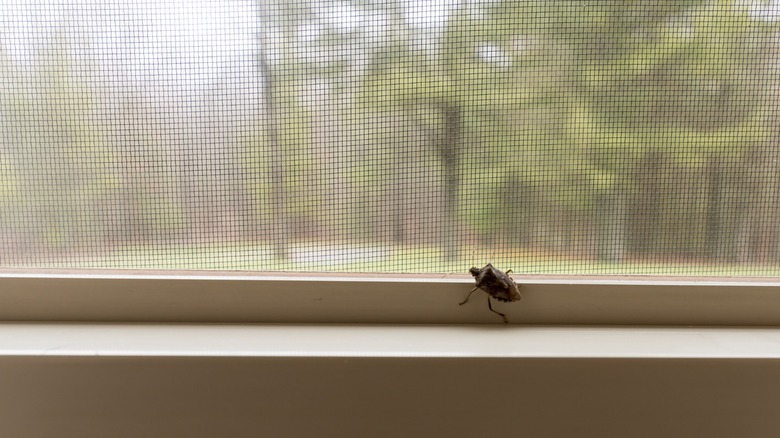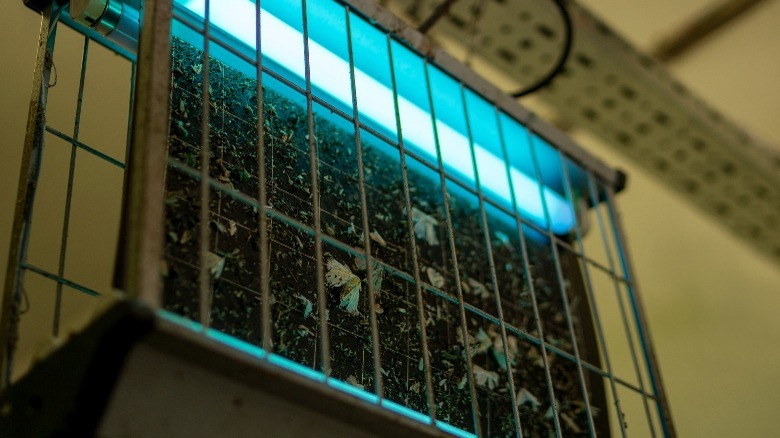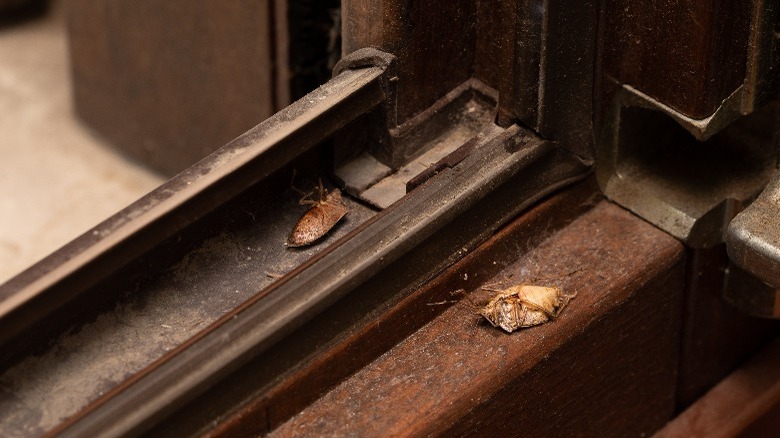Do Bug Zappers Work For Stink Bugs Or Do They Cause A Smelly Situation?
Stink bugs, those small, brown shield-shaped insects, can be a big nuisance, especially if they get inside your home. While most species of stink bugs don't smell or bite, they release a pungent odor when threatened or crushed. Unfortunately, some people may be allergic to the smelly chemical they emit. If you're considering ways to eliminate stink bugs from your home without direct contact (to avoid their notorious odor upon crushing), a bug zapper might be the first solution that comes to mind. But how effective are they? According to experts, bug zappers are indeed efficient in eradicating stink bugs. This effectiveness is primarily due to the insects' attraction to light and heat, which are key features of bug zappers.
This is backed up by Tracey Leskey, a research leader and entomologist from the Agricultural Research Center, in an article published in the U.S. Department of Agriculture, saying that stink bugs are attracted to chemical cues like pheromones and visual cues, like U.V. black and blue lights — the ones used in bug zappers. As an added bonus, because they die immediately upon contact, stink bugs don't have the time to emit the odor! However, you may still smell that light burnt smell after they're incinerated.
Why bug zappers may not be a good choice
You may want to buy a bug zapper to get rid of stink bugs in your home and potentially target other pests like mosquitoes. However, many experts warn against using these bug zappers. Despite being marketed for killing mosquitoes and other biting insects such as horseflies and dog flies, these insects are not particularly attracted to bug zappers.
A study published in Psyche: A Journal of Entomology highlighted that insecticides used against stink bugs are often either ineffective or, worse, they may inadvertently kill beneficial insects. This includes moths and various parasitoids and predators. Given the indiscriminate nature of these devices and the propensity to harm these beneficial insect populations, experts caution homeowners against relying on bug zappers as a pest control solution, including for stink bugs. Additionally, a 2000 study published in Springer Link found that killing flies with bug zappers tends to release viruses and bacteria from these flies, which can contribute to the spread of these infectious agents.
Alternative strategies to get rid of stink bugs
If you decide against using bug zappers, there are several effective measures you can take to prevent an infestation of pests like stink bugs. The key strategy is to block their entry into your home by sealing any cracks. This can be achieved by installing insect screens on windows and doors, repairing or replacing damaged caulking, and sealing other common entry points. These entry points might include areas around window-mounted air conditioners, vents, chimneys, and baseboards.
It's also best to avoid using insecticides in your home. Firstly, doing so can expose your family and pets to harmful chemicals, posing health risks. Secondly, using insecticides won't prevent future infestations of pests like stink bugs, as they don't address the root cause of the problem, which is typically entry points in the home. Why not try more natural alternatives? For example, you might want to use chili peppers; these kitchen ingredients will solve your stink bug problem in an instant!


